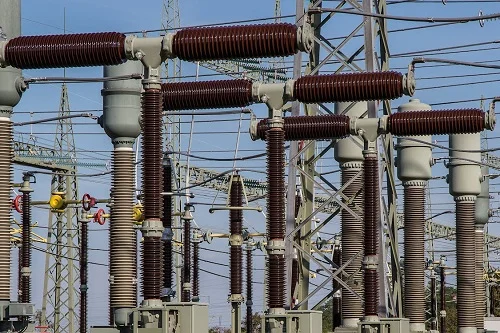Energy Service Companies (ESCOs) are specialized firms that offer a wide range of energy solutions to businesses and organizations. These companies design, implement, and finance energy efficiency projects, aiming to reduce energy consumption and costs for their clients. By taking on the risk and investment associated with energy efficiency projects, ESCOs enable their clients to benefit from energy savings without upfront costs.
What does an energy services company do?
ESCOs play a vital role in the energy industry by providing comprehensive energy solutions. Their services typically include:
- Energy audits: ESCOs conduct thorough assessments of a facility’s energy usage to identify areas where improvements can be made.
- Project design and implementation: Based on the audit results, ESCOs develop customized energy efficiency projects, which may include installing energy-efficient equipment, improving building insulation, and optimizing HVAC systems.
- Project financing: ESCOs often provide financing for energy efficiency projects, allowing clients to benefit from the savings without a significant upfront investment.
- Performance contracting: ESCOs typically enter into energy savings performance contracts with their clients, guaranteeing specific energy savings.
How does an energy service agreement work?
An energy service agreement is a contract between an ESCO and a client that outlines the terms and conditions of an energy efficiency project. These agreements typically include:
- Energy savings guarantees: ESCOs guarantee specific levels of energy savings over a defined period.
- Payment terms: ESCOs are typically paid based on the achieved energy savings, often through a shared savings arrangement.
- Project scope: The agreement details the specific energy efficiency measures that will be implemented.
- Performance metrics: Key performance indicators (KPIs) are established to track the project’s success.
How do energy service companies make money?
ESCOs generate revenue through a variety of mechanisms, including:
- Shared savings: ESCOs and their clients share in the energy savings realized through the project.
- Performance-based fees: ESCOs may receive additional fees based on the achievement of specific performance targets.
- Equipment sales: ESCOs can generate revenue by selling energy-efficient equipment to their clients.
How much can you make selling energy?
The revenue generated by an ESCO can vary significantly depending on factors such as the size and complexity of the project, the energy savings achieved, and the specific terms of the energy service agreement. Generally, larger projects with significant energy savings potential can result in higher revenues for ESCOs.
What are the biggest ESCO companies?
The ESCO industry is highly competitive, with numerous companies operating globally. Some of the largest and most well-known ESCO companies include [insert names of major ESCO companies, e.g., Siemens, Johnson Controls, Honeywell]. These companies have extensive experience in the industry and offer a wide range of energy efficiency services.
The environmental benefits of ESCOs
ESCOs play a crucial role in addressing climate change and promoting sustainability. By reducing energy consumption, ESCOs help to reduce greenhouse gas emissions and protect the environment. Additionally, energy efficiency projects implemented by ESCOs can have a positive impact on local ecosystems and biodiversity.
One of the most significant environmental benefits of ESCOs is their ability to reduce carbon emissions. By implementing energy-efficient measures, ESCOs can help to lower the demand for fossil fuels, which are a major source of greenhouse gas emissions. This contributes to mitigating climate change and protecting the planet for future generations.
The financial benefits of ESCOs
ESCOs offer significant financial benefits to their clients. By reducing energy consumption, ESCOs can help businesses and organizations to lower their energy costs and improve their bottom line. Additionally, energy efficiency projects can increase the value of properties and attract tenants.
The financial benefits of ESCOs are often realized through shared savings arrangements, where ESCOs and their clients share in the energy savings achieved. This can result in substantial cost savings for businesses and organizations, allowing them to reinvest in other areas of their operations.
The challenges facing ESCOs
While ESCOs offer numerous benefits, they also face several challenges. One of the primary challenges is the upfront investment required to implement energy efficiency projects. Although ESCOs often provide financing options, some clients may still be hesitant to invest in these projects. Additionally, ESCOs may face regulatory hurdles and competition from other energy service providers.
To overcome these challenges, ESCOs must develop innovative financing models and build strong relationships with their clients. Additionally, they must stay informed about the latest regulations and industry trends to remain competitive.
The future of ESCOs
The future of ESCOs looks promising as the demand for energy efficiency solutions continues to grow. As the world becomes increasingly focused on sustainability and climate change, ESCOs will play a vital role in helping businesses and organizations reduce their environmental impact.
In the future, we can expect to see ESCOs offering even more advanced energy efficiency solutions, such as renewable energy generation and energy storage systems. Additionally, the development of new financing models and government incentives will likely make it easier for businesses and organizations to partner with ESCOs.
Conclusions
Energy Service Companies (ESCOs) play a critical role in promoting energy efficiency and sustainability. By providing comprehensive energy solutions, ESCOs help businesses and organizations reduce their energy consumption, lower costs, and minimize their environmental impact. The energy savings performance contract model has proven to be an effective way to finance energy efficiency projects, and ESCOs have become increasingly important players in the global energy market.
Recommendations
- Consider partnering with an ESCO: If you are looking to improve the energy efficiency of your facility, partnering with an ESCO can be a cost-effective and efficient way to achieve your goals.
- Understand the contract terms: Carefully review the terms of any energy service agreement before signing.
- Choose a reputable ESCO: Select an ESCO with a proven track record and a strong reputation in the industry.
- Monitor project performance: Continuously monitor the performance of your energy efficiency project to ensure that it is meeting the expected results.






